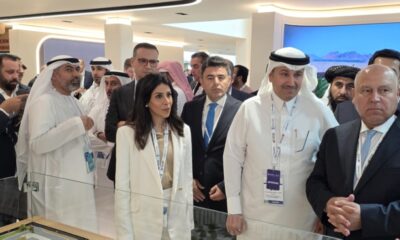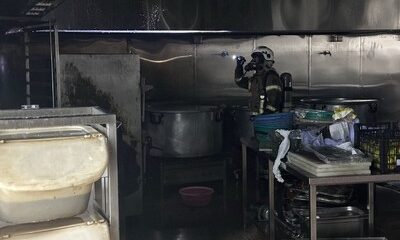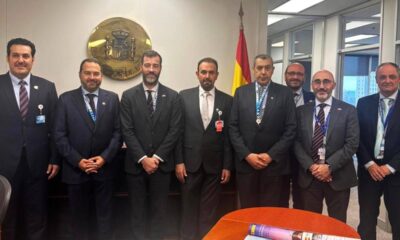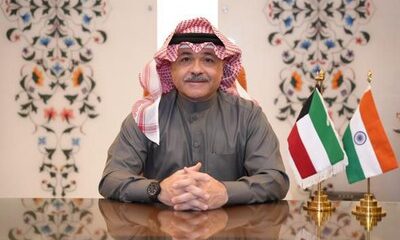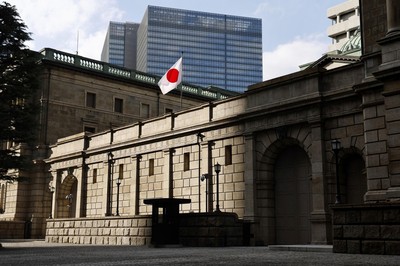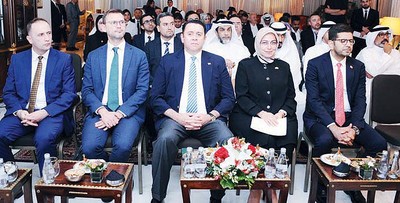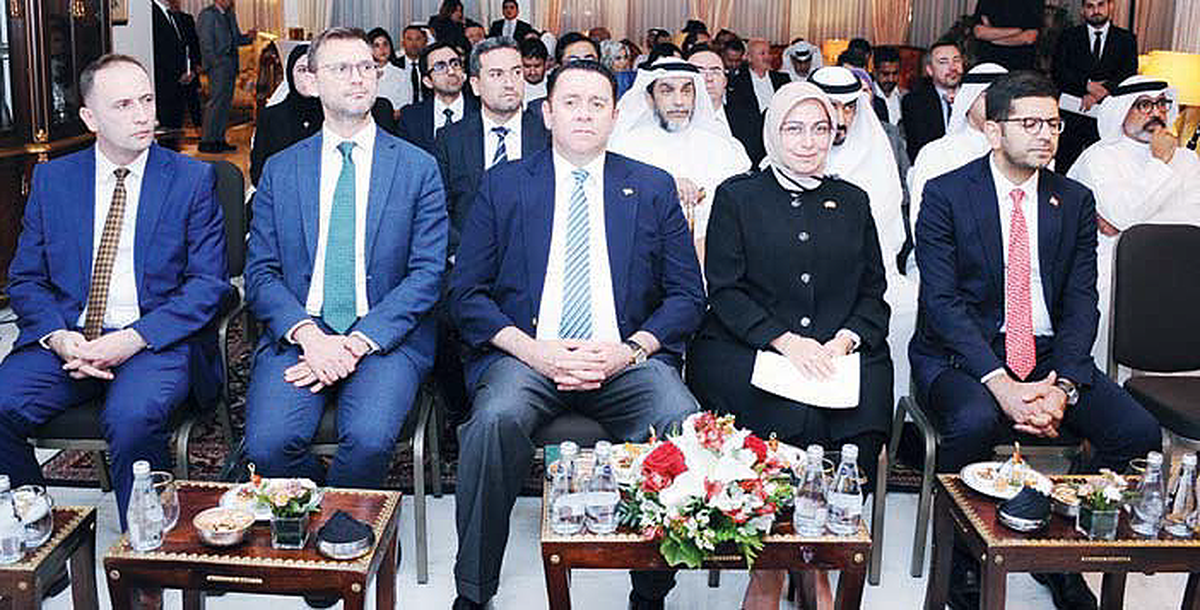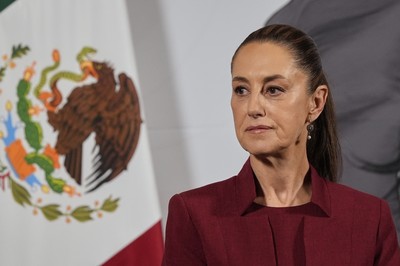FRANKFURT, April 7, (AP): Global stock markets extended a severe plunge Monday, fueled by fears that U.S. tariffs would lead to a global economic slowdown. European and Asian shares saw dramatic losses, the leading U.S. index flirted with bear market territory in pre-market trading, and oil prices sagged. The massive sell-off in riskier assets at the start of the trading week follows President Donald Trump’s announcement of sharply higher U.S. import taxes and retaliation from China that saw markets fall sharply Thursday and Friday. Tokyo’s Nikkei 225 index lost nearly 8% shortly after the market opened and futures trading for the benchmark was briefly suspended. It closed down 7.8% at 31,136.58. European shares followed Asian markets lower, led by Germany’s DAX index, which briefly fell more than 10% at the open on the Frankfurt exchange, but recovered some ground to move down 5.8% in morning trading.
In Paris, the CAC 40 shed 5.8%, while Britain’s FTSE 100 lost 4.9% in the European morning. U.S. futures signaled further weakness ahead. For the S&P 500, they lost 3.4%, while for the Dow Jones Industrial Average, they shed 3.1%. Futures for the Nasdaq lost 5.3%. If the pre-market futures losses materialize when the U.S. market opens, the S&P 500 will enter bear market territory – defined as a fall of more than 20% from the peak. The index was off 17.4% as of the end of last week. On Friday, the worst market crisis since the COVID-19 pandemic shifted into a higher gear as the S&P 500 plummeted 6% and the Dow plunged 5.5%. The Nasdaq composite dropped 3.8%.
“There’s no sign yet that markets are finding a bottom and beginning to stabilize,” wrote Deutsche Bank analysts in a research note. Late Sunday, Trump reiterated his resolve on his decision to introduce tariffs of 10% to 50% on goods imported into the U.S., a move seen as massively disrupting world trade and supply chains across borders. Speaking to reporters aboard Air Force One, he said he didn’t want global markets to fall, but also that he wasn’t concerned about the massive sell-offs, adding, “sometimes you have to take medicine to fix something.” Heavy selling kicked in after China on Friday matched Trump’s tariff, upping the stakes in a trade war that many fear could end in a global recession.
Even a better-than-expected report on the U.S. job market, usually the economic highlight of each month, wasn’t enough to stop the slide. “The idea that there’s so much uncertainty going forward about how these tariffs are going to play out, that’s what’s really driving this plummet in the stock prices,” said Rintaro Nishimura, an associate at the Asia Group. Chinese markets often don’t follow global trends, but they also tumbled. Hong Kong’s Hang Seng dropped 13.2% to 19,828.30, while the Shanghai Composite index lost 7.3% to 3,096.58. In Taiwan, the Taiex plummeted 9.7%. South Korea’s Kospi lost 5.6% to 2,328.20, while Australia’s S&P/ASX 200 lost 4.2% to 7,343.30, recovering from a loss of more than 6%. Asian economies are heavily exposed to Trump’s tariffs since they are dependent on exports, and a large share go to the United States. “Beyond the market meltdown, the bigger concern is the impact and potential crises for small and trade-dependent economies, so it’s crucial to see whether Trump will reach deals with most countries soon, at least partially,” said Gary Ng of Nataxis. Oil prices also sank further, with U.S. benchmark crude down $2.30 to $59.69 per barrel. Brent crude, the international standard, gave up $2.33 to $63.25 a barrel. As with the larger sell-off, the drop was fueled by fears that the tariffs would slow economic growth. That would hit demand for fuel, and the drop comes after moves to increase production by the OPEC+ producers’ alliance. Exchange rates also gyrated. The U.S. dollar fell to 146.24 Japanese yen from 146.94 yen. The yen is often viewed as a safe haven in times of turmoil.
The euro rose 0.3% to $1.0992. Nathan Thooft, chief investment officer and senior portfolio manager at Manulife Investment Management, said more countries are likely to respond to the U.S. with retaliatory tariffs. Given the large number of countries involved, “it will take a considerable amount of time in our view to work through the various negotiations that are likely to happen.” “Ultimately, our take is market uncertainly and volatility are likely to persist for some time,” he said. The Federal Reserve could cushion the blow of tariffs on the U.S. economy by cutting interest rates. That can encourage companies and households to borrow and spend. But Fed Chair Jerome Powell said Friday that the higher tariffs could drive up expectations for inflation and lower rates could fuel still more price increases. Much will depend on how long Trump’s tariffs stick and how other countries react. Some investors are holding onto hope he will lower the tariffs after negotiating “wins” from other countries. Stuart Kaiser, head of U.S. equity strategy at Citi, wrote in a note to clients that earnings estimates and stock values still don’t reflect the full potential impact of the trade war. “There is ample space to the downside despite the large pullback,” he said.

 Business22 hours ago
Business22 hours ago
 Politics15 hours ago
Politics15 hours ago
 Latest News20 hours ago
Latest News20 hours ago
 Latest News22 hours ago
Latest News22 hours ago
 Latest News13 hours ago
Latest News13 hours ago
 Politics12 hours ago
Politics12 hours ago
 Politics13 hours ago
Politics13 hours ago
 Latest News12 hours ago
Latest News12 hours ago





